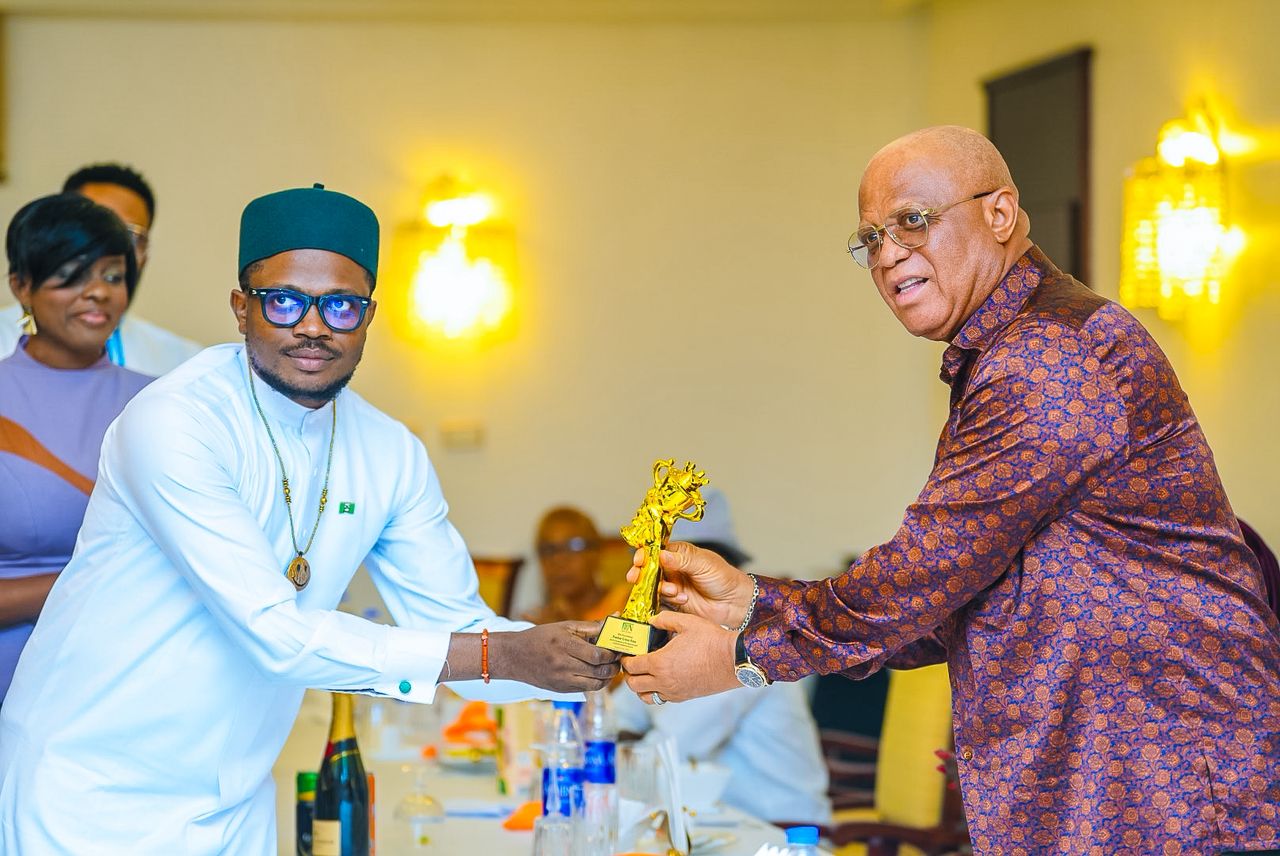Akwa Ibom State Governor, Pastor Umo Eno, has been formally confirmed as the Patron of the Directors Guild of Nigeria.
The DGN, founded in 1999, is the professional body representing directors in the Nigerian film and television industry.
Over the years, the Guild has played a pivotal role in shaping Nollywood, now regarded as the second-largest film industry in the world.
Its 25th anniversary celebration, held alongside the Akwa Ibom Entertainment Week, marked a major milestone in the Guild’s efforts to strengthen collaboration with government and stakeholders for the growth of the creative industry.
A statement issued by the Guild’s Public Relations Officer, Emmanuel Eyaba, on Friday, noted that the confirmation was made during a special dinner held in Uyo in honour of a DGN delegation in the state, as part of activities to mark the Guild’s 25th anniversary celebration and to participate in the ongoing Akwa Ibom Entertainment Week.
The statement noted that while speaking at the event, Eno urged members of the DGN to be intentional about mentorship for young talents in the creative industry, stressing that sustainability and growth in Nollywood can only be achieved through deliberate capacity building.
“Let the industry understand that your power is in your multiplication. The more we watch you perform, the more we see the people you have mentored, the happier we will be, and the more the industry will thrive,” the statement quoted Eno as saying.
It added that speaking further, Eno expressed concern that without strategic mentorship, Nollywood risks losing its audience to foreign competition. It noted that he specifically tasked the Akwa Ibom State Chairman of DGN, Mr Moses Eskor, to explore ways of bringing back indigenous stars to support and mentor upcoming professionals.
Eno, who has remained consistent in promoting human capacity development, announced plans to expand the State Creative Academy into a Creative Village, designed to provide broader opportunities for training and innovation in the industry.
“If we really want to empower our young people, we should have a Creative Village where the Academy would be a component,” he added.
The Governor also commended the DGN for choosing Akwa Ibom as the host state for its landmark anniversary, assuring his administration’s readiness to partner with the Guild in training and empowering young people to thrive in the creative space.
In recognition of his unwavering support for the arts, DGN President, Mr Uche Agbo, presented an award to the governor as Champion and Patron of the Guild. Agbo applauded Eno’s investment in the creative industry, noting his engagement of several Guild members as aides in entertainment and cultural development.
He further assured that DGN would deepen collaboration with the Akwa Ibom State Government to build capacity for young Nigerians interested in working behind the scenes in Nollywood.
The Commissioner for Culture and Tourism, Dr Anietie Udofia, in his remarks, appreciated the governor for hosting the Guild and highlighted the serene, safe, and culturally rich ambience of the State as the reason DGN chose Akwa Ibom for its anniversary celebration.
Also present at the event were Nollywood actress, Ms Ebenezer Eno, who thanked the Governor for his support to creatives, and the Senior Special Assistant to the Governor on Entertainment, Mr David Sergeant (Utang Akwa Ibom), who commended the governor for his consistent commitment to the growth of the industry.
By confirming Eno as its Patron, the Directors Guild not only recognises his contributions to the creative industry but also formalises a partnership that is expected to boost Nollywood’s sustainability through mentorship, capacity building, and cultural promotion.
FOLLOW US ON:
FACEBOOK
TWITTER
PINTEREST
TIKTOK
YOUTUBE
LINKEDIN
TUMBLR
INSTAGRAM































